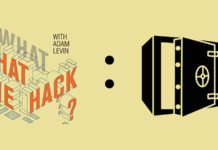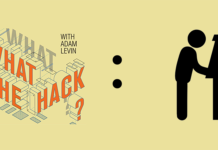
The Wells Fargo sales scandal will cost chairman and chief executive John Stumpf $41 million and former community banking supervisor Carrie Tolstedt $19 million, as per a decision made by the bank’s board announced on Tuesday. The money will come from the executives’ unvested equity awards through a clawback process.
For Stumpf, the $41 million is about 25% of the compensation he received during his 35 years at the bank, the Wall Street Journal said; he earned a total compensation of $19.3 million in 2015, according to an Equilar data analysis. Stumpf will also forego his salary during an independent internal investigation mandated by the bank’s board. He will not receive a bonus for 2016.
Carrie Tolstedt, who was head of community banking, has left the company ahead of her planned December retirement and will forfeit all of her outstanding unvested equity awards, valued at approximately $19 million, based on Tuesday’s closing share price. She also won’t receive a bonus for 2016 or be paid severance or receive any retirement enhancements in connection with her separation from the company, according to a statement from Wells Fargo. “She has also agreed that she will not exercise her outstanding options during the pendency of the investigation,” according to the statement.
Wells Fargo faced a $185 million penalty fine by the Consumer Financial Protection Bureau and a thrashing by the U.S. Senate Committee on Banking earlier this month over some two million accounts that were opened using fictitious or unauthorized information without customers’ consent. The actions were the result of a cross-selling incentive that gave employees bonuses if they met quotas. Former employees have claimed they were fired or demoted for not meeting the impossible quotas set by the bank, and have filed a $2.6 billion class action lawsuit. The bank fired 5,300 employees over the fraud but took no action against the supervising executives, which drew further criticism from the Senate Committee last week.
In Stumpf’s prepared testimony to the Senate, he said he was “deeply sorry” and takes full responsibility for “all unethical sales practices in our retail banking business, and I am fully committed to doing everything possible to fix this issue.” He said the fraudulent accounts were not done through an orchestrated effort by the company and employees were never directed to provide products and services that customers did not want or need.
The Independent Directors of the Board of Directors of Wells Fargo & Company have launched an independent investigation into the company’s retail banking sales practices and related matters, and a special committee of independent directors will lead the investigation, working with the board’s Human Resources committee and independent counsel. Stumpf has recused himself from all matters related to the Independent Directors’ investigation and deliberations.
“We are deeply concerned by these matters, and we are committed to ensuring that all aspects of the Company’s business are conducted with integrity, transparency, and oversight,” Stephen Sanger, lead independent director, said in a press release. He noted, the bank may take other employee related actions “so there can be no repetition of similar conduct.”
This moment in history may produce repercussions: Earlier this month, regulators proposed tighter restrictions on how Wall Street bankers are paid.
Wells Fargo had not responded to requests for follow-up comment by press time.
Remember, it’s always a good idea in general to monitor your credit report for any unauthorized accounts in your name. You can pull your credit reports for free each year at AnnualCreditReport.com and get a free snapshot of your credit report, updated every two weeks, at Credit.com.
This article originally appeared on Credit.com and was written by Christine Giordano.










